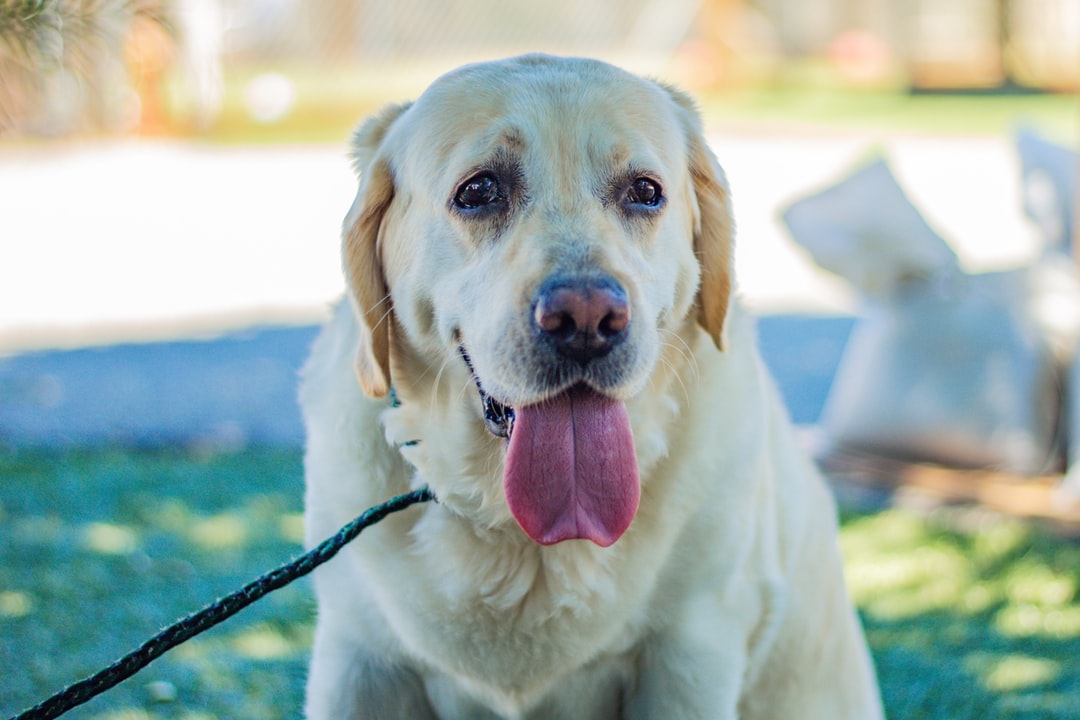Productive Cough
This is a wet, mucus-like cough, typically associated with conditions like kennel cough or respiratory infections. The pet may produce mucus or phlegm.
Non-Productive Cough
This is a dry, hacking sound that may signal conditions like allergies or asthma.

Occasional Coughing vs. Chronic Coughing
Occasional coughing can be normal, but persistent coughing or coughing episodes that worsen over time should not be ignored.

Notre mission de protection animale
Offrez un
tDenHyb™ Trial Set
tDenHyb™ Trial Set is intended for first time users to try out the performance of these two
tDenHyb™ solutions in their laboratories. The set includes one 0.50 ml vial of tDenHyb-1 and one 0.50
ml vial of tDenHyb-2. Depending on the type of probes, select either tDenHyb-1 or tDenHyb-2 for
tissue FISH.
• tDenHyb-1; tDenHyb-1 was developed to enhance hybridization for repeat
sequence/centromeric probes on paraffin-embedded tissue sections, But it is less effective
for unique sequence probes.
• tDenHyb-2; tDenHyb-2 was developed to enhance hybridization for unique sequence probes
on paraffin-embedded tissue sections. But it is less effective for unique sequence probes.
o INS-D105: tDenHyb-1 solution; 0.50 ml
tDenHyb-2 solution; 0.50 ml
cDenHyb™ Trial Set
cDenHyb™ Trial Set is intended for first time users to try out the performance of these two
cDenHyb™ solutions in their laboratories. The set includes one 0.50 ml vial of cDenHyb-1 and one 0.50
ml vial of cDenHyb-2. Depending on the type of probes, select either cDenHyb-1 or cDenHyb-2 for cell
FISH.
• cDenHyb-1; cDenHyb-1 was designed for general cell FISH. Most of DNA probes are very
effective with cDenHyb-1, but less with unique sequence probes.
• cDenHyb-2; cDenHyb-2 was designed to use for cell FISH with the use of unique sequence
probes, but it is less effective for repeat sequence or paint probes.
o INS-D005: cDenHyb-1 solution; 0.50 ml
cDenHyb-2 solution; 0.50 ml
Key Respiratory Conditions that Cause Coughing

Canine Cough
Also known as kennel cough, it’s a highly contagious condition that causes a dry, hacking cough in dogs.

Bronchitis and Asthma in Cats
Chronic coughing can be a sign of asthma or bronchitis in cats, which is often triggered by environmental factors.

Feline Respiratory Infections
Cats often develop coughing as a result of respiratory infections, including feline herpesvirus and calicivirus.

When to Seek Veterinary Help
If your pet's cough is persistent or accompanied by other signs like labored breathing, lethargy, or a decrease in appetite, it's time to see the vet. Early diagnosis can prevent complications and ensure a quicker recovery.
Lab Coughing:
What’s Behind the Sound ?

Understanding Coughing in Laboratory Animals
Coughing in lab animals, particularly rodents or other species, can occur for a variety of reasons, from environmental factors to underlying health issues. This section will help researchers and lab technicians understand and manage coughing in their animals.

Possible Causes of Coughing in Lab Animals
- Allergies and Environmental Factors: Dust, bedding materials, and ventilation systems can contribute to coughing in lab animals.
- Viral or Bacterial Infections: Respiratory infections are a common cause of coughing in laboratory settings.
- Effects of Laboratory Chemicals: Exposure to certain chemicals can irritate the respiratory system, leading to coughing.

How Coughing in Lab Animals is Managed
- Observation: Regular monitoring of coughing sounds and the overall health of the animal.
- Diagnostic Testing: Tests to identify infections or allergens.
- Treatment: Administering medications or adjusting environmental conditions to reduce irritants.
Distemper and Kennel Cough in Dogs
What is Distemper in Dogs?
Distemper is a serious viral disease that affects dogs, leading to coughing, fever, and a host of other symptoms. It’s highly contagious and can be fatal if not treated. Early detection and vaccination are crucial.
- Symptoms: Coughing, fever, nasal discharge, lethargy, and loss of appetite.
- Transmission: Spread through airborne particles or direct contact with infected animals.
- Treatment: While there is no cure, supportive care can help manage symptoms.
What is Kennel Cough?
Kennel cough, or canine infectious tracheobronchitis, is a contagious respiratory disease that causes a dry, hacking cough in dogs.
- Symptoms: A dry, honking cough, sometimes followed by retching.
- Treatment: Typically managed with rest, cough suppressants, and sometimes antibiotics.
- Prevention: Vaccination and avoiding exposure to infected animals are key to preventing kennel cough.
Distemper vs. Kennel Cough
While both diseases cause coughing, they differ in terms of their cause, symptoms, and severity. Distemper is viral and affects multiple systems in the body, whereas kennel cough primarily affects the respiratory tract.
Unraveling the Mystery Behind Your Pet’s Cough: A Comprehensive Guide

Common Causes of Coughing in Pets
Pets can cough for many reasons, from respiratory infections to allergies. Some of the most common causes include :
- Allergies: Environmental allergens like dust, pollen, or smoke can cause pets to cough.
- Heartworm Disease: Coughing, especially after physical activity, can be a symptom of heartworm disease in dogs.
- Feline Asthma: Asthma in cats can cause coughing, wheezing, and difficulty breathing.
- Canine Parainfluenza Virus: A highly contagious virus that causes a dry cough in dogs.

How to Help Your Pet with a Hough
- Home Remedies: A humidifier can help ease coughing, while honey (for dogs) may soothe a sore throat.
- Veterinary Treatments: Your vet may prescribe cough suppressants, antibiotics, or other medications based on the underlying cause.
- Environmental Changes: Reducing dust and allergens in your pet’s environment can help reduce coughing.
-
-

Professional Treatments for Pet Coughs
- Bronchodilators: Medications that open up the airways in pets suffering from asthma or bronchitis.
- Steroid Inhalers for Cats: Cats with asthma may benefit from steroid inhalers prescribed by a vet.
- Antibiotics: For bacterial infections like pneumonia, antibiotics may be required.

Respiratory Conditions in Pets that Result in Coughing
1- Respiratory Diseases in Cats and Dogs
Several respiratory conditions in pets can lead to coughing, including :
- Canine Influenza: A viral infection that causes coughing, fever, and nasal discharge in dogs.
- Chronic Bronchitis in Dogs: Chronic inflammation of the airways can lead to persistent coughing in older dogs.
- Feline Viral Respiratory Infections: Feline herpesvirus and calicivirus are common causes of coughing in cats.
2- How to Identify Respiratory Conditions
- Symptoms to Watch For: Coughing, nasal discharge, labored breathing, and lethargy.
- Diagnosis: Your vet will perform diagnostic tests, including blood work, chest X-rays, or cultures, to determine the cause of the cough.
3- Preventing Respiratory Conditions in Pets
- Vaccination: Ensure your pet is up to date on all recommended vaccinations.
- Avoiding Sick Animals: Keep your pet away from areas where other sick pets may be.
- Clean Environment: Regularly clean your pet’s bedding and living area to reduce allergens and irritants
The Importance of Regular Vet Visits
Custom Beauty Solutions
Regular checkups are crucial for maintaining your pet's health and catching issues early. During these visits, your vet can monitor your pet’s overall health and detect any early signs of illness, such as respiratory issues.
What Happens During a Regular Vet Checkup?
- Heart and Lung Examinations: Your vet will listen to your pet’s heart and lungs to detect any abnormal sounds, such as coughing or wheezing.
- Bloodwork and Diagnostic Imaging: Blood tests and X-rays can help identify underlying conditions.
- Preventive Treatments: Your vet will administer any necessary vaccines and provide flea, tick, and worm treatments.
How Often Should You Take Your Pet to the Vet?
- Puppies and Kittens: Every 3-4 weeks until 16 weeks of age.
- Adult Pets: Annually for a wellness checkup.
Senior Pets: Semi-annually, as older pets are at higher risk for health issues.
The Importance of Exercise for Pet Health

How Exercise Benefits Your Pet’s Overall Health
Regular exercise is essential for your pet's physical and mental well-being. It helps maintain a healthy weight, improves cardiovascular health, and reduces stress and anxiety.

Types of Exercise for Dogs and Cats
- Dogs: Daily walks, fetch, and playtime at the park.
- Cats: Interactive toys, climbing structures, and laser pointers.

How Much Exercise is Enough?
- Dogs: Most dogs need at least 30 minutes to an hour of exercise each day.
- Cats: While they don’t need as much exercise, interactive playtime for 15-20 minutes a day is beneficial.

Why High-Quality Food is Essential for Your Pet
High-quality pet food provides essential nutrients that support your pet’s overall health, including a shiny coat, healthy skin, and a strong immune system. Choosing the right food can also help prevent obesity and manage chronic conditions.
Choosing the Right Food for Your Pet
- Wet vs. Dry Food: Each type has its benefits; wet food is often more palatable and provides extra moisture, while dry food helps with dental health.
- Special Diets: Some pets may require special diets, such as hypoallergenic food for sensitive stomachs or foods designed for senior pets.
How to Read Pet Food Labels
Look for high-quality ingredients like meat, fish, and vegetables. Avoid fillers such as corn and soy, which provide little nutritional value. Also, check the nutritional breakdown to ensure the food meets your pet's specific needs.



